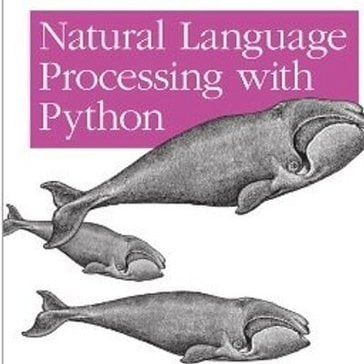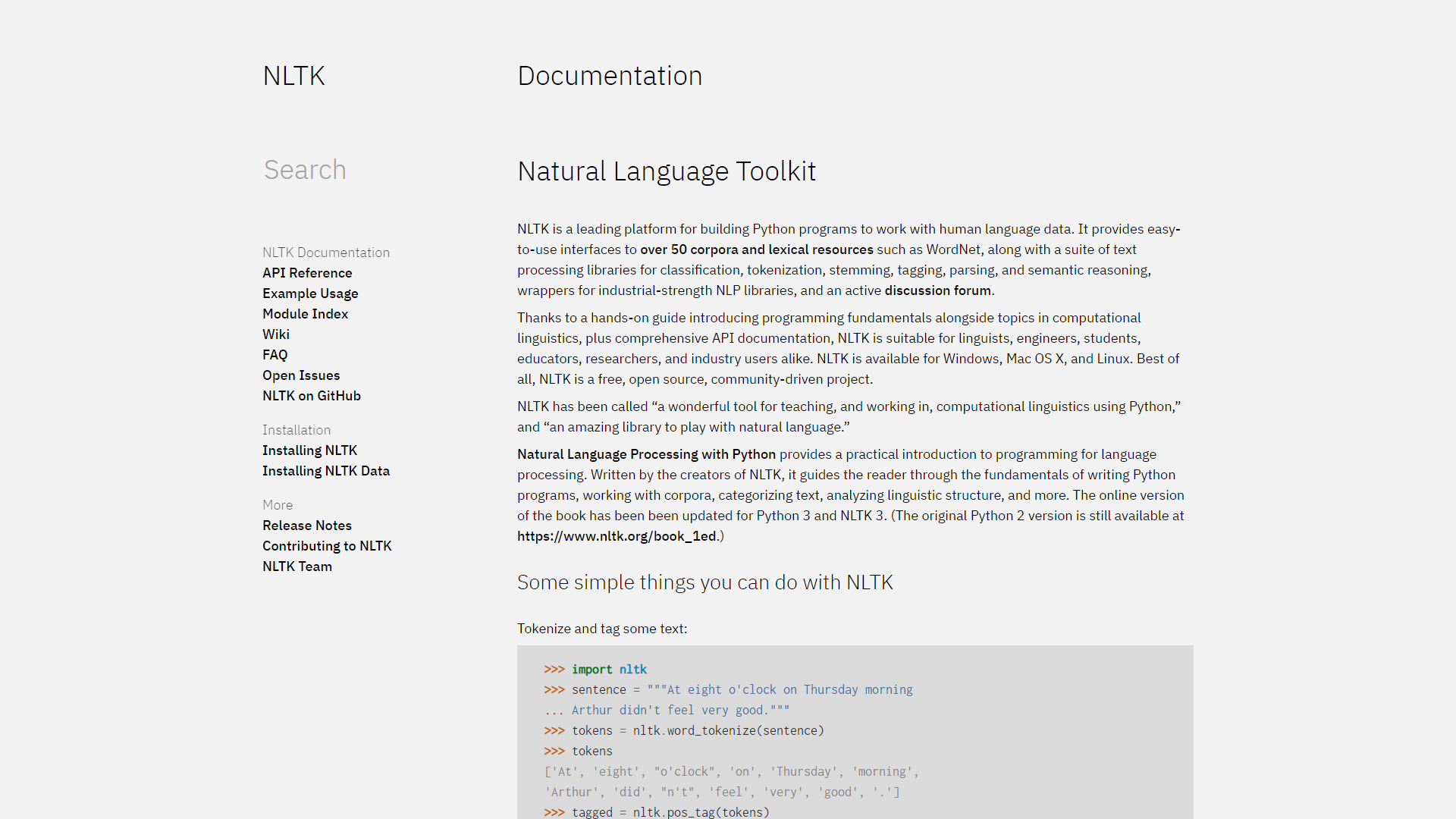
NLTK
NLTK is a powerful library for natural language processing.
🏷️ Price not available

- Overview
- Pricing
- Features
- Pros
- Cons
Overview
Natural Language Toolkit, commonly known as NLTK, is a popular library in Python that helps users work with human language data. It provides tools and resources for text processing, making it easier for developers and researchers to analyze and manipulate textual data. With numerous resources, including corpora and lexical resources, NLTK allows users to explore various aspects of language, such as tokenization, stemming, and parsing.
NLTK is widely used in both academic and industry settings. It offers a friendly interface, making it accessible for beginners while still providing advanced features for experts. The library supports a range of text analysis tasks and provides functionalities that facilitate the teaching and learning of natural language processing.
Due to its extensive documentation and a large user community, NLTK has become a go-to resource for anyone interested in natural language processing. Moreover, its versatility allows it to be applied in various fields, such as text mining, sentiment analysis, and chatbot development.
Pricing
| Plan | Price | Description |
|---|
Key Features
🎯 Comprehensive Toolkit: NLTK offers a wide range of libraries and tools for various NLP tasks, from tokenization to classification.
🎯 Corpora Access: The library provides access to numerous corpora and lexical resources, making it easy to work with linguistic data.
🎯 Text Processing Capabilities: NLTK includes functionalities for stemming, lemmatization, and part-of-speech tagging, which are essential for text analysis.
🎯 Built-in Algorithms: It comes with several built-in algorithms for tasks like classification, stemming, and parsing, allowing for quick implementation.
🎯 User-friendly Interface: The interface is designed to be intuitive for beginners, making it easier to learn natural language processing concepts.
🎯 Extensive Documentation: NLTK has thorough documentation, including tutorials and guides for users to follow, enhancing the learning process.
🎯 Community Support: An active community offers help and resources, making it easier for users to troubleshoot issues or find unique solutions.
🎯 Visualization Tools: The library includes tools to visualize data, which helps in understanding and interpreting results effectively.
Pros
✔️ Wide Range of Functions: NLTK provides diverse tools for different NLP tasks, making it versatile for a number of applications.
✔️ Good for Education: The library is perfect for teaching NLP concepts due to its clear documentation and examples.
✔️ Access to Linguistic Resources: With NLTK, users have access to valuable linguistic data, enhancing their projects.
✔️ Customizable: Users can customize aspects of the toolkit to better fit their specific needs.
✔️ Open Source: NLTK is free to use, which is great for students and researchers on a budget.
Cons
❌ Performance Issues: NLTK can be slower compared to other libraries, especially with large datasets.
❌ Steep Learning Curve: While designed for beginners, the vast amount of features can be overwhelming at first.
❌ Dependency on Python: Users need to be familiar with Python programming, which may not suit all users.
❌ Limited Support for Some Modern NLP Techniques: While comprehensive, it may lack support for the latest frameworks like deep learning methods.
❌ Installation Complexity: Some users may face challenges during the installation process due to dependencies and environmental setup.
Manage projects with Workfeed
Workfeed is the project management platform that helps small teams move faster and make more progress than they ever thought possible.
Get Started - It's FREE* No credit card required
Frequently Asked Questions
Here are some frequently asked questions about NLTK. If you have any other questions, feel free to contact us.